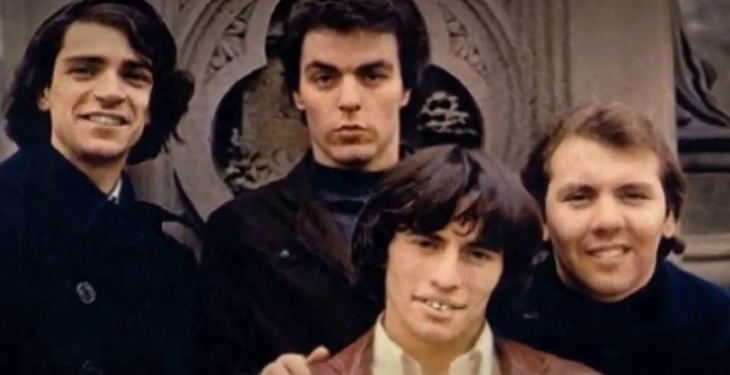As a teenager in the 1960’s, one musical theme was young love with all its thrills, excitement, and struggles. Ray Charles sang Georgia On My Mind about a long ago love that haunted relationships of today. The Beatles recorded Michelle and Yesterday about the feelings of a young man in love. First, a young man wondered if he would ever be able to make a young lady of interest realize what she meant to him. Then came the sad tale of a man wondering why the girl he loved walked away, “Why she had to go I don’t know, she wouldn’t say.”
Two Young Rascals songs that resonate with me are Groovin’ and How Can I Be Sure? The former ignites memories of Sunday afternoons of “cruisin” our hometown. With other couples and friends, I drove from the local Sealtest grill to the Hardee’s and back…with a girl named Carol by my side. For many of that period, I am sure the latter song is reminiscent of struggles with the serious nature of youthful relationships. The implications may last a lifetime. “How can I be sure?”
Last week, a vastly different discussion surrounded the same question. A young woman in her early twenties shared the struggles she was encountering. She chronicled her life for us. The nature of her personality led her to being “emotionally swept up by the chaotic culture,” adopting moral and ethical positions which she now firmly believed conflicted with Biblical truth. “Still, I value what people think…for better or worse. Whenever someone criticizes what I believe, I wonder, ‘Could they be right?’ How can I be sure?”
The question is pervasive. How can I be sure I made the correct choice of major in college? How can I be sure all the money I had to borrow to go to college will be worth it? How can I be sure I should take this job offer? How can we be sure we should relocate the family?
There are biblical principles that provide aid and guidance. Scripture is not merely a book of answers to life questions and should not be approached in this way. However, as we read God’s Word, we learn precepts applying to various areas of life.
First, we should be willing to examine ourselves after making any decision. Questioning is NOT a bad thing. In both of the apostle Paul’s letters to the church at Corinth, he encouraged followers of Christ to examine themselves. In his first letter he wrote about the Lord’s Supper, “A man must examine himself, and in so doing he is to eat of the bread and drink of the cup.” (1 Cor 11:29). In his second letter he noted, “Test yourselves to see if you are in the faith; examine yourselves.” (2 Cor 13:5)
There is a vast difference between questioning decisions or beliefs and nurturing doubt. Examining ourselves can lead us to take appropriate corrective action. Examining ourselves allows us to learn from mistakes and build wisdom. Nurturing doubt lends itself to building fear that paralyzes us from making a decision or acting when appropriate.
How can I be sure? Be willing to examine different perspectives both before and after a decision is implemented. Take corrective action when we discover it is necessary. Analyze how a mistake was made, learning not to repeat the same erroneous process in the future.
Second, find qualified advisors to guide you rather than cheer for you. I believe we all need encouragers. We do not need to surround ourselves with negative nabobs. Those who consistently say, “I knew you would make a mess of things,” are easy to find.
However, Scripture again provides wisdom and guidance. Proverbs 11:14 tells us, “Where there is no guidance the people fall, But in abundance of counselors there is victory.” We need to surround ourselves with people who know more than we do, with those who have already done the things we want to do in life. They can provide the wisdom of their mistakes.
Read widely from wise people. Forty years ago I lived in Gastonia, NC, the birthplace of Thomas Sowell. I have never met Mr. Sowell, but I have read his editorials and books he has written. He has helped develop the processes by which I think. Even the person of the most modest of means can gather wise counselors by reading.
How can I be sure? Think carefully before acting. Ask others for their guidance and be willing to hear it. We do not have to enjoy another person’s advice to profit from it. We do not have to agree with someone to learn from them. Having an abundance of counselors will not prevent us from making a mistake, but it will reduce the number of them.
The Young Rascals released How can I be sure? in 1967. It is a song of nostalgia for me. I hope for you, it is the question you embrace. I hope for you, it is the beginning of the process of growing into the person God wants you to become.
